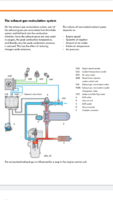It's a strange one as once you start to pressurise the intake system the EGR has to close otherwise all of the compressed air from the turbo is sent backwards through the EGR system into the exhaust so you'd think that under load there would be no combustion temperature issues with a blanked EGR but these failures are real.Was Involved with tuning Peugeot’s many moons ago deleting egrs and getting rid of the additive injection and remapping and tbh yes the power increases with remapping were great and a lot of the time improved mpg but when the egrs were deleted that’s when the problems came with lots of top end damage mainly due to increased combustion temperatures, so until someone has done theirs on a t6 and run it for 50,000 miles at least I’ll be keeping mine lol
A different type of EGR removal issue I'm aware of is around an EGR delete module that was developed in Australia for Mitsubishi Tritons (L200). This bodge plugged into the MAF/Inlet temperature sensor and basically told the ECU that the temperature was always below the threshold for the EGR to function. Owners of the DPF equipped versions of this vehicle started to get diesel diluting the oil because of failed DPF regenerations if they ran this module. The theory behind this delete module was good but it was done by people that didn't know exactly how the engine had been calibrated for performing DPF regenerations and the result was the sump filling with diesel that was being forced past the piston rings as the regen process was taking much longer than normal. They also didn't consider that the engine was also running on a part of the calibration intended for cold ambient temperature.


